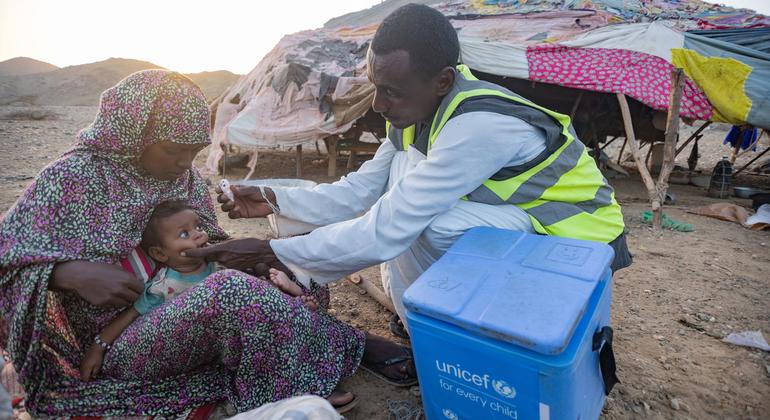Zeinaba Mahr Aoud, a 24 -year -old woman from Djibouti, recalls the day, ten years old, an unexpected visitor came home: “He had a syringe, a blade and shaving bandages.”
The woman was there to carry out a brutal, unnecessary and, since 1995 in the country of the horn of Africa, the illegal operation known as female genital mutilation, which involves sewing a girl's vagina and cutting her clitoris.
Even when Zeinaba's traumatic experience has cloudy his memories of that day, he still remembers the feeling of intense pain once the effects of anesthesia had worn out.
Difficult to walk
“I had problems walking and when I urinated, he burned,” he said.
His mother told him that it was nothing to worry about and talked about the degrading procedure in terms of the importance of tradition.
Like many victims of the MGF, Zeinaba came from a vulnerable and poor environment, living in an individual room with his mother and two sisters in a detailed neighborhood of the city of Djibouti.
“There was only one TV, suitcases where we stored our clothes and mattresses in which we slept,” he recalled.
His mother sold flat bread to passersby, while Zeinaba played with a jump rope with friends. “We also play on earth.”
230 million mutilations
Zeinaba Mahr Aoud, 24, a resident of Djibouti, survived female genital mutilation when he was 10 years old. Now voluntary for the “Elle & Elles” network, with the support of the UNFPA, turn on its neighborhood and others to convince residents to end the end of the practical network.
Some 230 million women and girls worldwide have undergone mutilations according to the data published by the UN sexual and reproductive health agency, UNFPA, and it is increasing that the youngest children always, sometimes less than five years, they put themselves under the knife.
“A baby does not speak,” he explained Dr. Wisal Ahmed, FGM specialist in UNFPA.
It is often considered a unique procedure, but in reality, it implies a life of painful procedures that continue in adulthood.
“The woman cuts again to have sex, then sew again, then reopened for childbirth and closed again to reduce the hole once again,” he said Dr. Ahmed.
Address harmful traditions
UNFPA and its international partners have worked to put a definitive end to the FGM and, although these efforts have contributed to a constant decrease in the rates to which the procedure is carried out in the last 30 years, the global increase of the population means the Number of women affected is actually growing.
UNFPA continues to work with communities that still participate in practice on short and long term effects.
The agency's work has been supported worldwide for several years by the United States government, which has recognized the MGF as a violation of human rights.
It is not a problem that affects only developing countries. According to the figures of the US Department of State, in the US, approximately 513,000 women and girls have suffered or are at risk of FGM.
Men's support
In Djibouti, in 2023, the United States provided about $ 44 million in foreign assistance.
The UNFPA confirmed that FGM programs supported by the United States have not yet been affected by current stop work orders, and added that “the United States support for UNFPA in the last four years resulted in an estimated of 80,000 girls who avoided female genital mutilation. “

UNFPA supports the consciousness that increases campaigns on MGF in Africa, even in Somalia (in the photo).
Local networks
Zeinaba Mahr Aouu now works as a volunteer for a local network launched by UNFPA in 2021, which has more than 60 women and provides support to local women's health and rights activists.
He also visits disadvantaged areas of Djibouti to create awareness among young people and future parents, both women and men, of the harmful effects of the MGF.
“Because she is not just the woman who participates in these practices: without the man's agreement by her side, it cannot be done,” he said.












